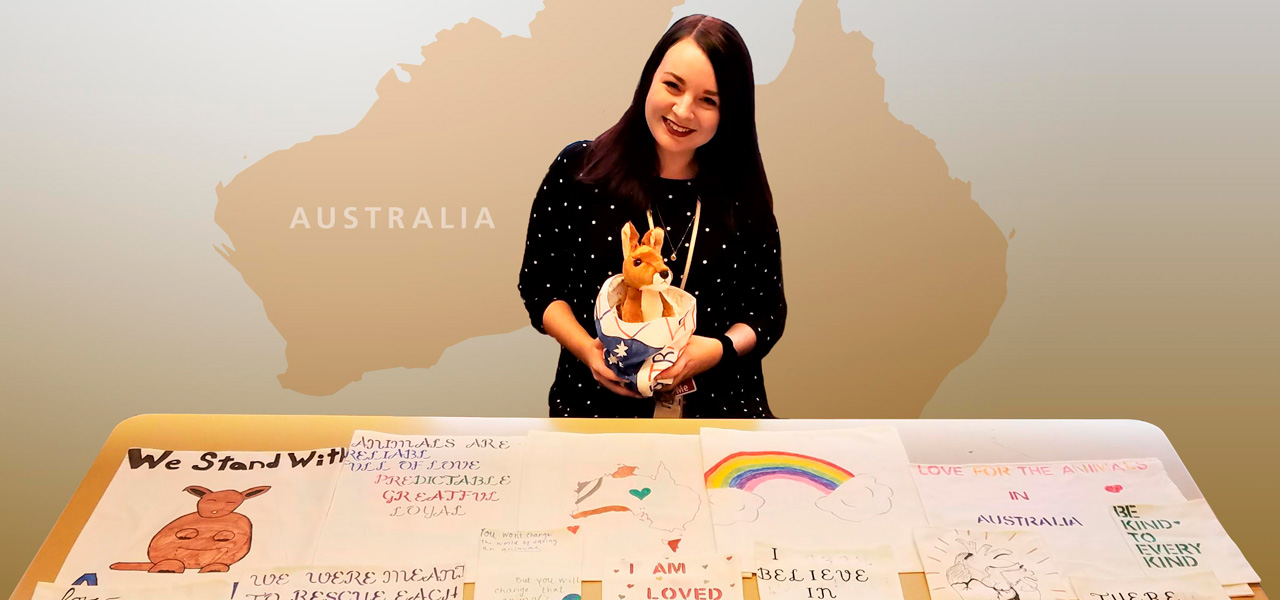When disasters like the Australian bush fires happen half a world away, it can be difficult to fathom how to help in an impactful way. Yet it becomes easier when you can focus on a single idea, such as the plight of orphaned baby kangaroos.
With 18 million acres of land burned, some experts have estimated that as many as 1 billion animals died in the fires and countless others were displaced. Animal rescue organizations took to social media earlier this year to request donations such as pouches for rescued baby marsupials, including kangaroos, koalas, wombats, and wallabies.
That led to a light bulb moment for Gabrielle Skinner (pictured above), MA, Mental Health Associate at Princeton House Behavioral Health’s outpatient site in Hamilton. Skinner proposed a patient art project to craft pouches for the baby marsupials, also known as joeys. Not only would the animals benefit from these “joey pouches,” she reasoned, but patients would get a real-life opportunity to practice contribution, a skill emphasized in dialectical behavior therapy (DBT) as a positive way to distract yourself from negative thoughts or emotions.
“When people are facing difficulties and are stuck in their own thoughts, they can help themselves by helping others,” she explains. “Practicing contribution can be something as simple as sharing good intentions in a relevant way.”
After researching and purchasing the appropriate fabric and supplies, Skinner began working with patients in child, adolescent, and women’s groups on Martin Luther King Jr. Day, which is designated as a national day of service. Patients decorated the pouches with positive phrases and messages of care for rescue workers, and Skinner sewed the pouches herself before sending them to Wildcare Australia, a nonprofit organization coordinating relief efforts.
“I’m so thankful to work for an organization that supports and encourages this kind of creativity,” Skinner adds. “It’s wonderful when patients can practice these skills in a real, attainable way.”
Article as seen in the Spring 2020 issue of Princeton House Behavioral Health Today.



